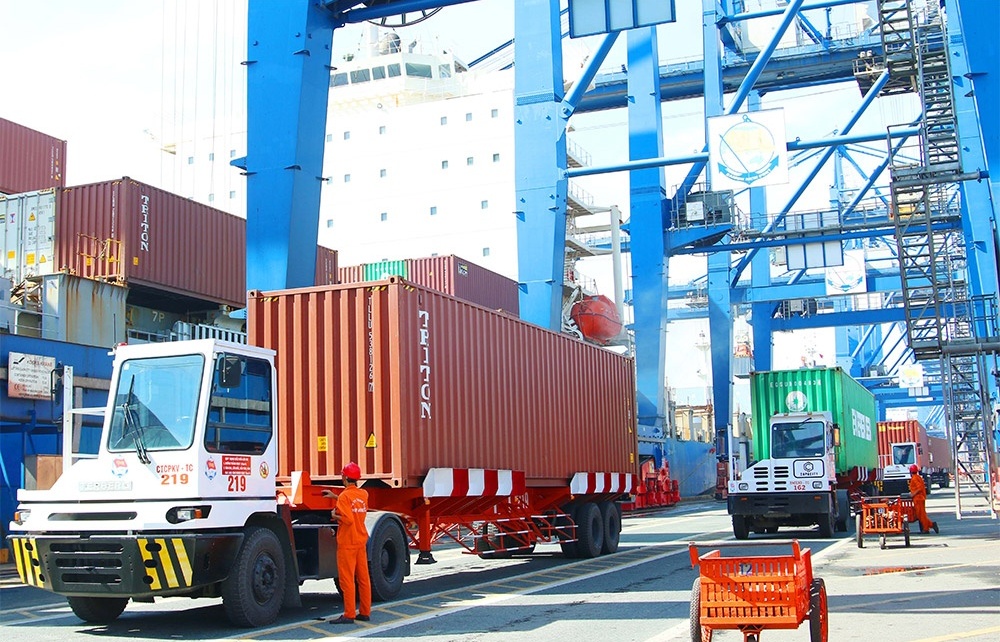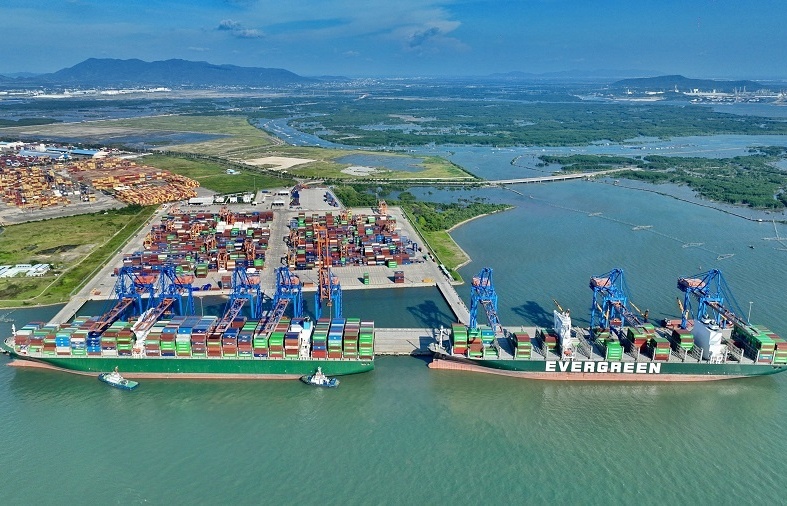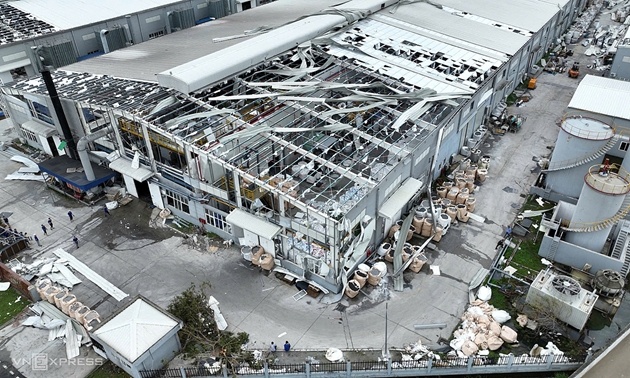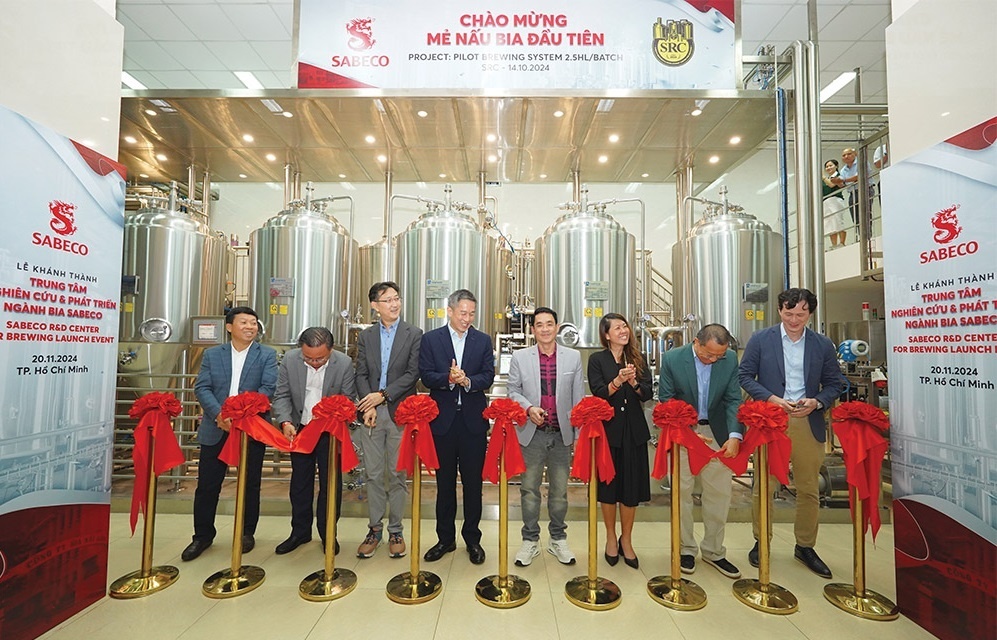Auto firms sound alarm at future

Porsche presented to customers the top selling models in Vietnam: the high-end Cayenne SUV, the luxurious four-door Gran Turismo, Panamera and the iconic sports car, Porsche 911
The message was sent at an automotive industry conference on tax and fee policies, coincidentally held with Vietnam Motor Show 2012 in Hanoi last week.
All the attendees admitted that in developing countries like Vietnam, with huge market potential and rising incomes, the automobile industry provides great opportunities, not only for the industry itself but also for the entire society and the community.
“We see a lot of opportunities in Vietnam in the next five years,” said Matt Bradley, president of Ford in ASEAN, adding that the market could increase 120 per cent by 2018.
According to the Vietnam Automobiles Manufacturers Association, Vietnam had a population of roughly 90 million people and an estimated car park of only 750,000 cars at this time. This means there are eight cars for every 1,000 people.
Still, despite the huge market potential, industry insiders have growing concerns over the industry’s ailing development as the market is declining.
Andreas Klingler, general director of Porche Vietnam, said the automobile industry in Vietnam had declined continually since 2009 and would end this year at only 50 per cent of the sales volume in 2009. This is contrary to the global car market trend with an increase of 30 per cent.
“This is alarming and does not reflect a healthy development of an automobile industry in an emerging market,” said Klingler.
Ngo Van Tru, deputy director of the Department of Heavy Industry under the Ministry of Industry and Trade, said even though the world’s gloomy macroeconomic situation affected the local market, the main effects were caused by internal factors.
Based on the complete tax factor, Vietnam is one of the most expensive countries in the world to own a car, and at the same time is one of the poorest in terms of purchasing power per capital. A car in Vietnam is usually three times more expensive that in the US or Europe.
Despite the downward trend of import taxes under World Trade Organization (WTO) commitments, the local car industry’s total tax factor has been increased over the years such as special consumption tax and ownership fees.
“In short, import taxes are declining based on WTO commitments but other related taxes are increasing and therefore cars getting more expensive year by year,” said Klingler.
Another factor that industry insiders blamed for declining car market in Vietnam is poor infrastructure. While infrastructure is improving very slowly, it seems to be that the only option ensuring a reasonable traffic flow on roads in big cities like Hanoi and Ho Chi Minh City is to limit participation and ownership of cars.
Actually, the government’s current policies do exactly this, with high taxation and restrictions; keeping the price of cars at high level with the result that less and less people can dream of owning a car.
Bui Van Huyen, general director of domestic car-maker Vinaxuki Corporation, said if the policy-makers did not change their mindset about the auto industry, car-makers could not expand their investment in the country because of the small scale of the market. “Therefore, the car market will mostly depend on import cars,” he said.

Vietnam became the third country where Mercedes-Benz unveiled two new versions of premium SUV Mercedes-Benz GLK including GLK300 and GLK300 AMG

Automotive Asia Limited, the official importer of Audi brand in Vietnam, introduced three new models including Audi A4 1.8 TFSI, Audi Q5 2.0 TFSI Quattro and Audi R8 Spyder Quattro. This is the first time an Audi R8 Spyder Quattro has been introduced in Vietnam

The intelligent model range of Luxgen appears in the motor show including the successful Luxgen7 MPV, Luxgen7 SUV and the new product line Luxgen5 sedan

Ford Vietnam launched the All-new Focus to tap the customers’ appetite
What the stars mean:
★ Poor ★ ★ Promising ★★★ Good ★★★★ Very good ★★★★★ Exceptional
Related Contents
Latest News
More News
- Vietnam’s economy on track for 6.5 per cent growth despite Typhoon Yagi, says HSBC (October 01, 2024 | 16:46)
- Vietnam urges China to expand market access for agricultural products and strengthen trade ties (October 01, 2024 | 16:42)
- IMF predicts Vietnam's economic growth to reach 6.1 per cent in 2024 (September 30, 2024 | 18:26)
- Deli Group breaks ground on $270 million factory in Hai Duong (September 30, 2024 | 18:17)
- Government considering tax on multiple properties (September 27, 2024 | 20:17)
- Accuracy more vital than ever in dawn of AI (September 26, 2024 | 20:44)
- Vietnam remains attractive destination for US businesses (September 26, 2024 | 20:23)
- New innovation centre inaugurated during HEF 2024 (September 25, 2024 | 09:00)
- China's Geely to build $168 million automobile facility with Tasco in Thai Binh (September 24, 2024 | 19:03)
- Spate of claims made in typhoon aftermath (September 19, 2024 | 17:00)




 Tag:
Tag:





















 Mobile Version
Mobile Version